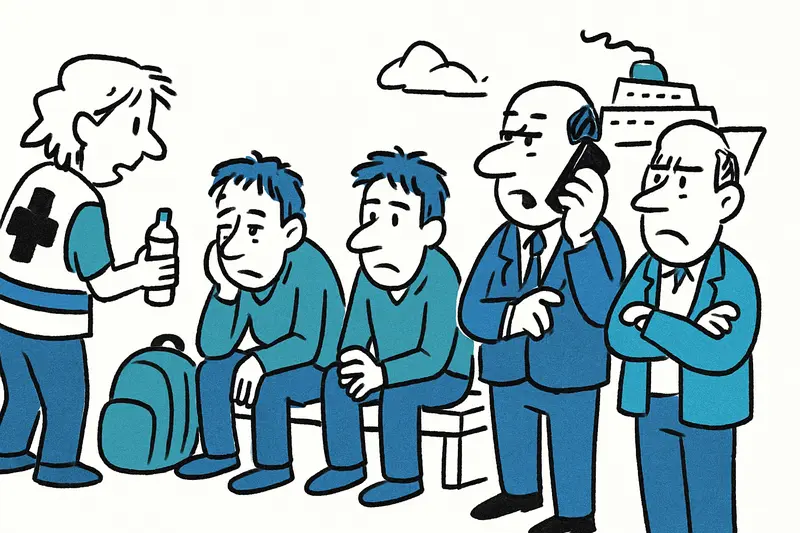More and more boats are reaching the Balearics. In Palma, people are piling up, seeking answers — authorities, volunteers, and residents are under pressure.
Ports are becoming a meeting point – and no one has a ready-made plan
As you walk along the ferry terminal in Palma these days, you can immediately tell something has changed. Around 7 a.m., groups of young people sit on benches along Passeig Marítim, with backpacks, wet jackets, tired eyes. Volunteers bring water, the Red Cross distributes blankets. At the same time, officials argue on the phone. It's a scene many of us on the island have seen more often lately.
Numbers that follow
According to the Interior Ministry, hundreds of boats have arrived off the coasts of the Balearics this year; a large number of landings and reevaluated people were counted. That has led to a noticeable rise in unregistered entries. Many of the arrivals are provided for in the short term, receive a return-order — and then travel on by ferry to the mainland. How many actually stay on Mallorca? That remains often unclear.
Where it sticks
Staff is missing, say local authorities. Identification and registration cannot be carried out seamlessly on some days. Not because people don't want to be helped, but because capacities are simply tight: too few officers, limited premises, foreseeable legal hurdles. Frontex has assessed the Balearic route as increasingly relevant — for the island itself, this is felt in everyday life.
At the same time, political debate flares up. Regional conservatives lament that Madrid is too lenient. Others warn against treating the issue solely as a security question: It is also a humanitarian problem — people arrive sometimes after difficult crossings.
What could happen now
The central government is establishing temporary shelters at the harbor, authorities are examining intensified controls and the possibility of requesting European support. In Palma, helpers speak of a balancing act: provide immediate aid, act legally correctly, and at the same time seek long-term solutions.
Some residents at Avinguda Gabriel Roca are worried, others show understanding. At the end of the day, there's a sense: the island is no longer just a transit point, but part of a movement that has changed. And while we discuss, boats keep arriving. Who bears the responsibility — local services, Madrid, or Brussels — remains open. One thing is certain: this topic will accompany us for a while yet.
Note: The numbers and statements are based on official reports and statements from local authorities. Volunteers and institutions work on-site under sometimes difficult conditions.
Similar News

Die Zeit auf Mallorca: Warum die Uhren hier anders ticken
Auf Mallorca läuft die Uhr offiziell anders als die Sonne — ein Erbe aus den 1940er-Jahren, das bis heute unseren Alltag...

Orange Weather Warning for Mallorca: Heavy Rain and Thunderstorms Set the Week
Aemet warns: Monday and Tuesday on Mallorca are under orange alert. Heavy rain, floods, and traffic disruptions are poss...

Life-threatening swimming accident in Ibiza: 73-year-old revived on the beach
During severe storms, a 73-year-old visitor swam despite a red flag. Lifeguards rescued her, and she is now seriously in...

Mummified Body Found in Abandoned House Near Santa Margalida
Between Can Picafort and Son Serra de Marina, teenagers discovered a mummified corpse in an abandoned house. Identity an...

Large Rockfall Blocks Ma-2141 Road Near Sa Calobra
After heavy rainfall, several rock blocks toppled onto the winding Ma-2141 toward Sa Calobra over the weekend. The road ...
